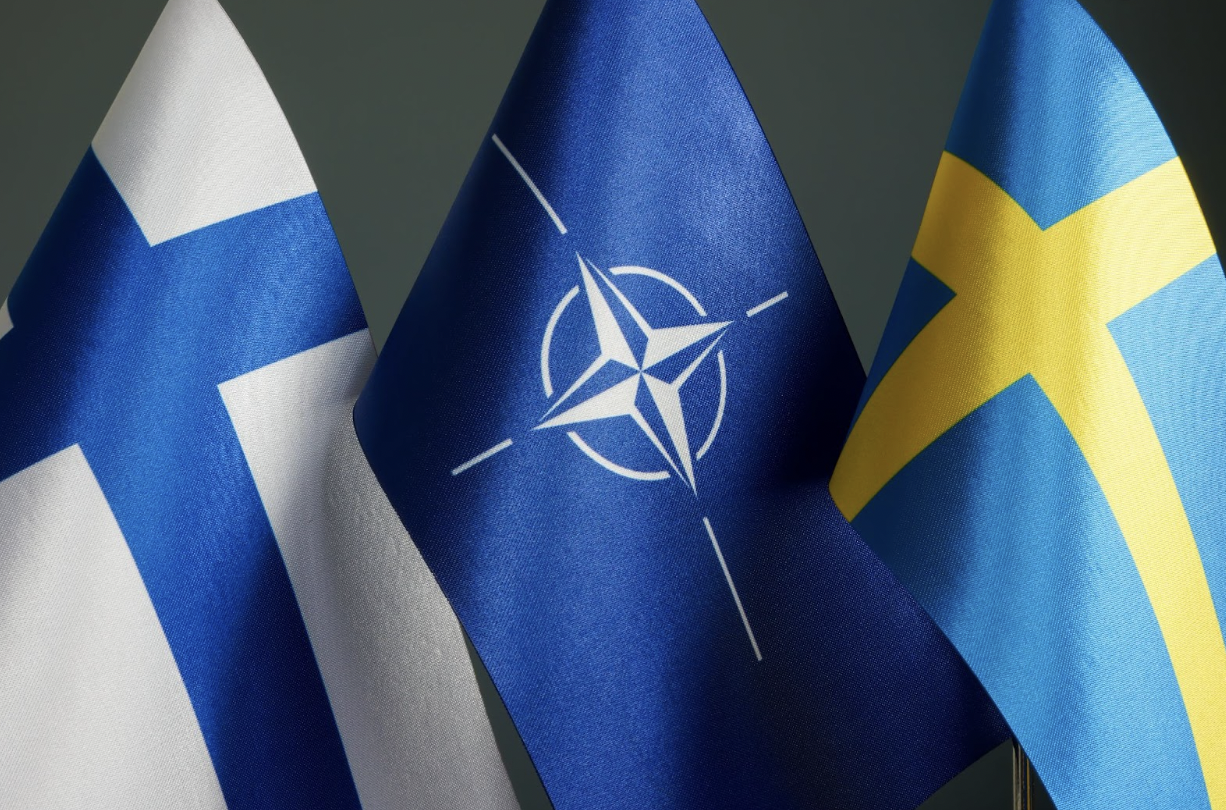![]()
In February 2024, Sweden’s accession to NATO was approved by Hungary, the final NATO member country in opposition to the move. Sweden first applied for NATO membership on May 18, 2022, but unanimous agreement was required, and Sweden’s application was blocked by Türkiye and Hungary. However, Sweden had a long and meaningful history with NATO even before its application.
Sweden’s first involvement with NATO was in 1994 when it joined the Partnership for Peace (PfP), a program designed to facilitate cooperation in the security realm between NATO states and non-NATO European states. In 1997, the Euro-Atlantic Partnership Council was established to create a forum for PfP states and NATO members to have an open discourse on security issues facing Europe. Building on these commitments, Sweden began establishing interoperability with NATO forces through systems like Identification Friend or Foe (IFF) in its aircraft.
Through the 2000s, Sweden consistently participated in joint military exercises with NATO. Sweden would continue to cooperate with NATO until 2014, when, in response to Russia’s annexation of Crimea, Sweden applied to become an Enhanced Opportunities Partner (EOP) of NATO.
Sweden and NATO then created a tailored plan for their partnership extending beyond the framework set in the PfP by increasing political discourse and intelligence sharing. Nevertheless, Sweden forestalled joining the security alliance as part of its long-standing tradition of neutrality dating back to the 1808 Finnish War. As a result, Sweden’s decision to join NATO is “part of a gradual change” says Professor John Gordon, a professor at the Georgetown Security Studies Program.
Sweden formally abandoned the principle of neutrality following Russia’s invasion of Ukraine in February 2022. The invasion marks the largest and most deadly conflict on the European continent since World War II.
Sweden and Finland both submitted applications to join NATO on May 18, 2022. However, approval of Sweden’s bid took 318 days longer than Finland’s. This delay can be attributed to Sweden’s fraught relationships with two NATO member states: Türkiye and Hungary. Türkiye claims that Sweden allowed members of the Kurdistan Workers’ Party (PKK), a NATO-designated terror group, to shelter in Sweden; Sweden has also supported the Syrian People’s Protection Units (YPG), which is associated with the PKK.
Sweden also has a sizable Kurdish community and a Kurdish Member of Parliament, Amineh Kakabaveh, who gave the majority party a one-seat majority in 2021. On January 23, Türkiye relented, approving Sweden’s bid in return for various concessions, including increased Swedish pressure on Kurdish movements, a new NATO counterterrorism position that will establish cooperation in dealing with internal terrorism threats and potential American assistance in obtaining F-16 fighter jets.
Hungary’s opposition was more clearly expressed than Türkiye’s. Sweden has been a vocal critic of Victor Orban’s government due to the democratic backsliding that has occurred since he took office. Despite waiting slightly longer, Hungary agreed to Swedish ascension on February 26, after Sweden offered four AS 39 Gripen jets and extended a defense contract to service Hungary’s Gripen fleet.
For Sweden, the benefits of NATO membership are clear. Russia’s invasion of Ukraine marked a new era in the European security paradigm. Territorial acquisition through military measures has re-emerged as a viable foreign policy tool for revisionist powers. Article 5 of the NATO charter states that “an armed attack against one or more of them in Europe or North America shall be considered an attack against them all.” This clause guarantees that NATO members will come to Sweden’s aid in the event of a Russian invasion. Coverage under Article 5 also doubles as a deterrent against Russian aggression, which is unlikely to seek a full-scale war with NATO. Furthermore, as a NATO member, Sweden will commit to enhanced intelligence sharing and participate in coordinated drills with NATO states in both peace and wartime.
NATO will also benefit from Sweden’s membership. Sweden’s accession bolsters the deterrent power of the alliance by augmenting the alliance’s capabilities. This increases the risk associated with any Russian action against NATO allies, particularly in the Baltic region. The Baltic states benefit from this safeguard because NATO now effectively controls the Baltic Sea, with the only non-NATO territory in the region being the Kaliningrad Oblast controlled by Russia. Controlling this area allows the alliance an alternative to the Suwalki Gap route to support the Baltic states, which is important as the gap is exposed and can be easily closed off by Russia. NATO’s ability to support the Baltic states is crucial as they share over 500 miles of border with Russia.
Sweden is the best country to facilitate dialogue between NATO, and its admission “will contribute to the deterrence of Russia in the Baltic States mainly because of its long-standing ties with Estonia,” said Professor Gordon.
Sweden is a robust economic power and boasts one of the largest defense sectors of any European country. The nation has been dubbed “the Silicon Valley of Europe” due to its innovative economy. Sweden is home to major 5G providers, lithium battery producers and software companies. Having another high-tech economy with a large defense industry will strengthen NATO’s military capabilities.
The country can also strengthen NATO’s military capacity. First, it provides much-needed strategic depth in the region. Finland shares 830 miles of border with Russia, while it is only roughly 360 miles wide, leaving it vulnerable to invasion. Sweden gives Finland vital strategic depth that can be used to launch air assaults using Sweden’s impressive air force.
Sweden brings decades of experience in navigating the treacherous Baltic, Arctic and North Seas. Such experiential knowledge is vital to the protection of the Region from aggression. Sweden controls several geo-strategic regions, most notably the Øresund Straight and the island of Gotland. The Øresund Strait connects the North and Baltic seas. Gotland is an island located in the center of the Baltic Sea, making control of it vital for any successful campaign in the region.
Sweden’s journey to NATO has been a long one riddled with twists and turns, but its accession to NATO will serve to benefit both the security alliance and Sweden itself. Its decision to join NATO will send reverberations throughout the foreign policy community as it fundamentally changes both the country’s policy and the European security apparatus. As such, it is essential for scholars of foreign policy and security studies at Georgetown to begin to study the implications of Sweden’s move and utilize the large body of work the institution’s scholars, like Professor Gordon, have produced.
Professor Gordon, quoted in this piece, has been an adjunct professor at the Georgetown Security Studies Program since 2006 and a member of a Washington-based think tank. Prof. Gordon has written extensively on military operations and security issues.











